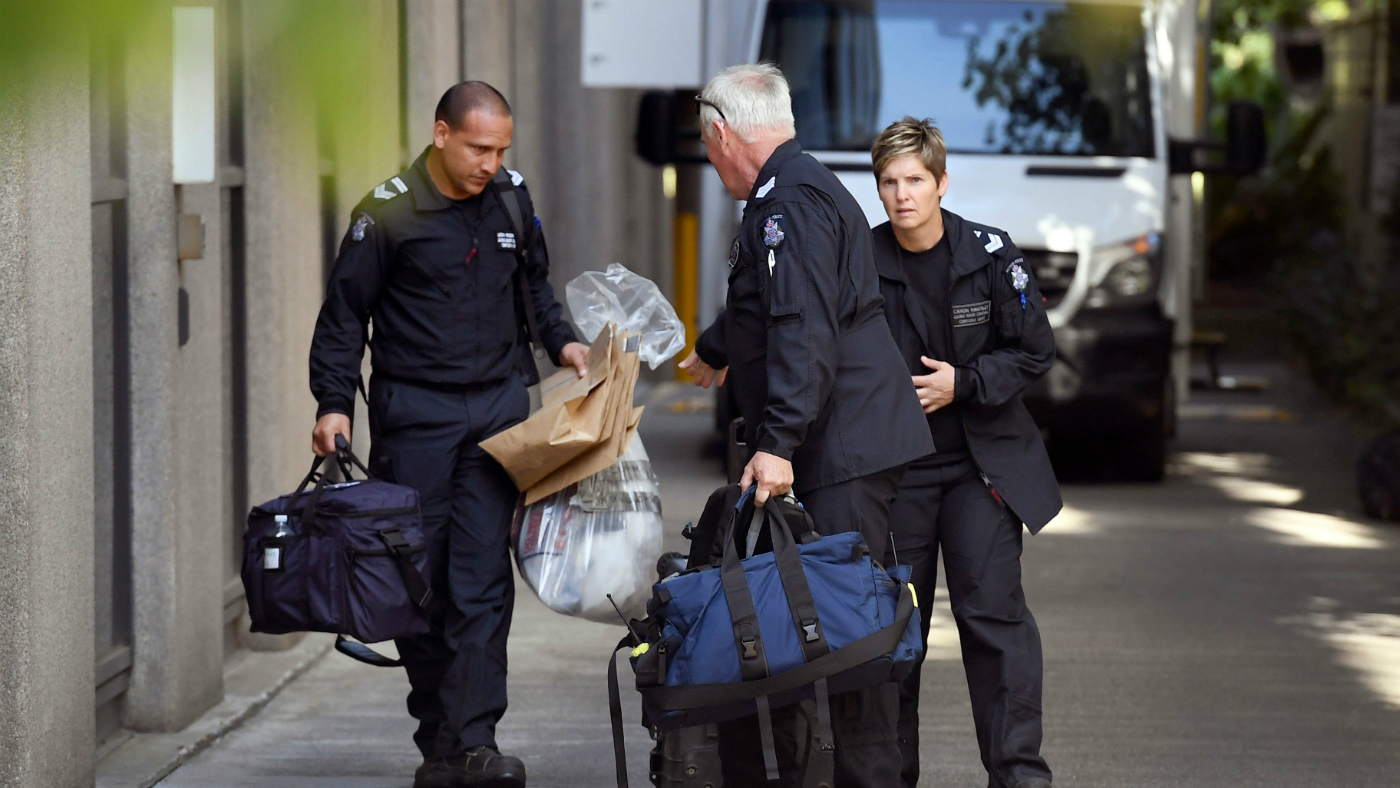Suspicious packages sent to consulates and embassies in Australia: who was targeted?
Alerts issued at up to 22 foreign diplomatic headquarters in Melbourne and Canberra

A free daily email with the biggest news stories of the day – and the best features from TheWeek.com
You are now subscribed
Your newsletter sign-up was successful
Deliveries of suspicious packages containing white powder have sparked a series of major emergency responses at consulates and embassies in Melbourne and Canberra.
Melbourne’s Metropolitan Fire Brigade said it had been called to “a number of incidents” across the city on Wednesday afternoon, reports the BBC. Regional newspaper The Age says that the South Korean, Indian and New Zealand consulates were all evacuated after receiving packages, while the US foreign diplomatic headquarters was placed in lockdown.
Suspicious packages were also delivered to the British, Spanish, Greek, Taiwanese and Turkish consulates, the paper adds.
The Week
Escape your echo chamber. Get the facts behind the news, plus analysis from multiple perspectives.

Sign up for The Week's Free Newsletters
From our morning news briefing to a weekly Good News Newsletter, get the best of The Week delivered directly to your inbox.
From our morning news briefing to a weekly Good News Newsletter, get the best of The Week delivered directly to your inbox.
According to unconfirmed reports, packages could have been sent to up to 22 locations - including the Italian, Thai, Swiss and Egyptian embassies - across Melbourne and in the Australian Capital Territory (ACT), the region including and surrounding Australian capital Canberra. The affected embassies in the ACT have not been identified.
The deliveries sparked an emergency “hazardous material” response, and specialist firefighters were seen carrying large bags emblazoned with the words “danger asbestos” as they left the South Korean and Indian consulates, The Guardian reports.
The Australian Federal Police (AFP) tweeted that the packages “are being examined by attending emergency services” and that “the circumstances are being investigated”.
Victoria Police issued a separate statement saying that it was aware of “a number of consulate offices in Melbourne today receiving suspicious packages”.
A free daily email with the biggest news stories of the day – and the best features from TheWeek.com
“At this time we believe the matter is targeted and not impacting the general community,” the statement continued.
The Brisbane Times reports that initial suspicions over the packages were raised by the misspelling of “consulate” on an envelope delivered to the Pakistani consulate in Melbourne on Wednesday morning.
-
 Quiz of The Week: 7 – 13 February
Quiz of The Week: 7 – 13 FebruaryQuiz Have you been paying attention to The Week’s news?
-
 Nordic combined: the Winter Olympics sport that bars women
Nordic combined: the Winter Olympics sport that bars womenIn The Spotlight Female athletes excluded from participation in demanding double-discipline events at Milano-Cortina
-
 Samurai: a ‘blockbuster’ display of Japanese heritage
Samurai: a ‘blockbuster’ display of Japanese heritageThe Week Recommends British Museum show offers a ‘scintillating journey’ through ‘a world of gore, power and artistic beauty’
-
 Epstein files topple law CEO, roil UK government
Epstein files topple law CEO, roil UK governmentSpeed Read Peter Mandelson, Britain’s former ambassador to the US, is caught up in the scandal
-
 Iran and US prepare to meet after skirmishes
Iran and US prepare to meet after skirmishesSpeed Read The incident comes amid heightened tensions in the Middle East
-
 Israel retrieves final hostage’s body from Gaza
Israel retrieves final hostage’s body from GazaSpeed Read The 24-year-old police officer was killed during the initial Hamas attack
-
 China’s Xi targets top general in growing purge
China’s Xi targets top general in growing purgeSpeed Read Zhang Youxia is being investigated over ‘grave violations’ of the law
-
 Panama and Canada are negotiating over a crucial copper mine
Panama and Canada are negotiating over a crucial copper mineIn the Spotlight Panama is set to make a final decision on the mine this summer
-
 Why Greenland’s natural resources are nearly impossible to mine
Why Greenland’s natural resources are nearly impossible to mineThe Explainer The country’s natural landscape makes the task extremely difficult
-
 Iran cuts internet as protests escalate
Iran cuts internet as protests escalateSpeed Reada Government buildings across the country have been set on fire
-
 US nabs ‘shadow’ tanker claimed by Russia
US nabs ‘shadow’ tanker claimed by RussiaSpeed Read The ship was one of two vessels seized by the US military